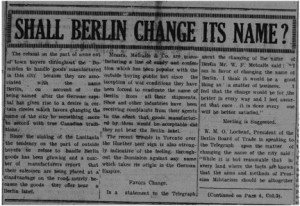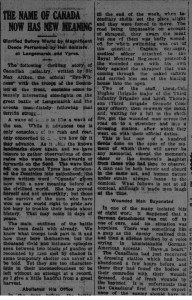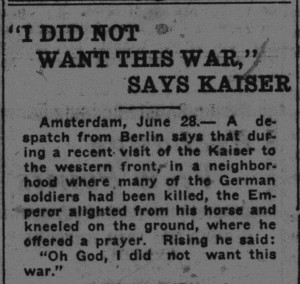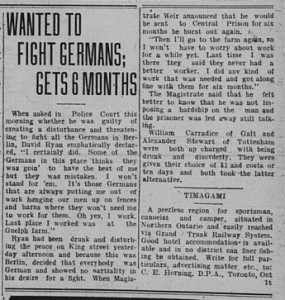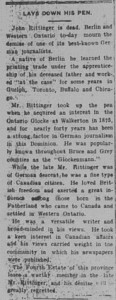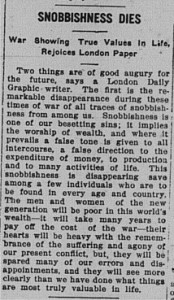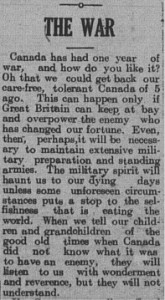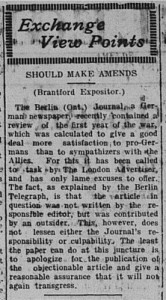One year into the war, relations between English and German Canadians still remained reasonably civil. As the conflict between Canada and Germany dragged on, however, it became more and more awkward for Ontarians to live and do business in a city named Berlin. In May 1915, the Berlin Daily Telegraph was reporting instances in which buyers were refusing to purchase goods with ‘Berlin’ printed on the label. This situation was gradually hurting local manufacturers, who were a significant component of the local economy. This economic argument in favour of changing the city’s name continued a debate that had been slowly intensifying since the war began. Unlike an article in the Berliner Journal, however, the English papers did not yet make any specific reference to ‘Kitchener’ as a possible replacement for ‘Berlin.’
Berlin Daily Telegraph, May 27, 1915.
